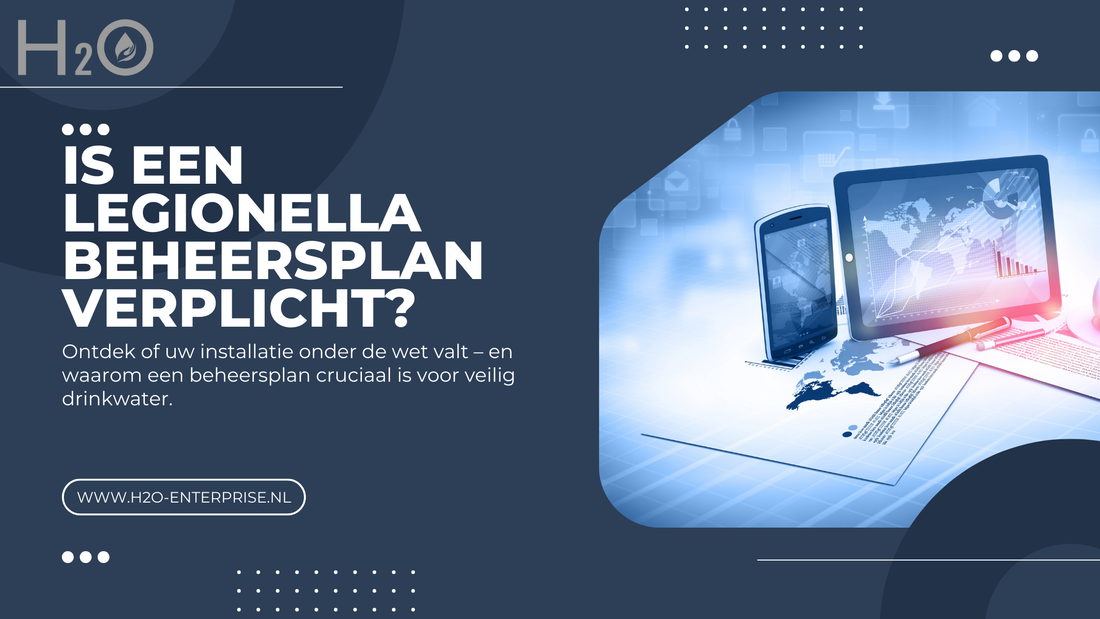
Is a Legionella management plan mandatory?
Share
Depending on the type of installation
Whether a Legionella management plan is mandatory depends on the type of installation. In the Netherlands, a distinction is made between:
- Priority installations – these are installations designated as high-risk by the Drinking Water Decree . Examples include hospitals, healthcare institutions, swimming pools, saunas, campsites, and hotels with more than 10 beds. A Risk Analysis and Management Plan (RABP) is mandatory for these installations.
- Installations subject to due care – these are all other collective drinking water installations, such as offices, sports complexes, and schools. These installations are subject to the duty of care (Drinking Water Decree, Articles 21 to 24). This means that the owner is responsible for safe drinking water. A formal management plan is not required here, but strongly recommended to comply with the duty of care.
In the The Drinking Water Decree, Article 35 , contains the list of priority institutions. This describes exactly which buildings and facilities are subject to the obligation.
The silent disaster and why the rules are so strict
Dutch laws and regulations regarding Legionella are strict. This stems from the 1999 Legionella outbreak in Bovenkarspel, also known as the silent disaster . During a flower show, more than 200 people became infected, of whom 32 ultimately died.
To prevent a recurrence, strict requirements have since been established in the Drinking Water Decree. A key difference compared to many other countries is that the Netherlands does not add chlorine to drinking water as a final product. This makes our water taste better, but bacterial growth in pipes can occur more quickly if systems are not managed properly.
Why a management plan is also useful for installations requiring due care
A Legionella management plan is not legally required for installations requiring proper care. However, it is still very valuable to have one drawn up.
Why?
- Without an inventory and plan, you will not have complete insight into the installation.
- You do not know which taps or parts of the pipeline network pose risks.
- Correct management is virtually impossible without an overview of measures and registrations.
A RABP helps you fulfill your duty of care practically and responsibly. It's the only way to be sure your installation is managed safely.
Conclusion
A Legionella management plan is mandatory for priority installations (see Drinking Water Decree, Article 35). While not mandatory for installations subject to due care, it is a proven tool for fulfilling the duty of care and limiting Legionella risks.
Want to know if your installation is subject to these requirements and how best to approach them? Contact H2O Enterprise for a free, no-obligation assessment.
